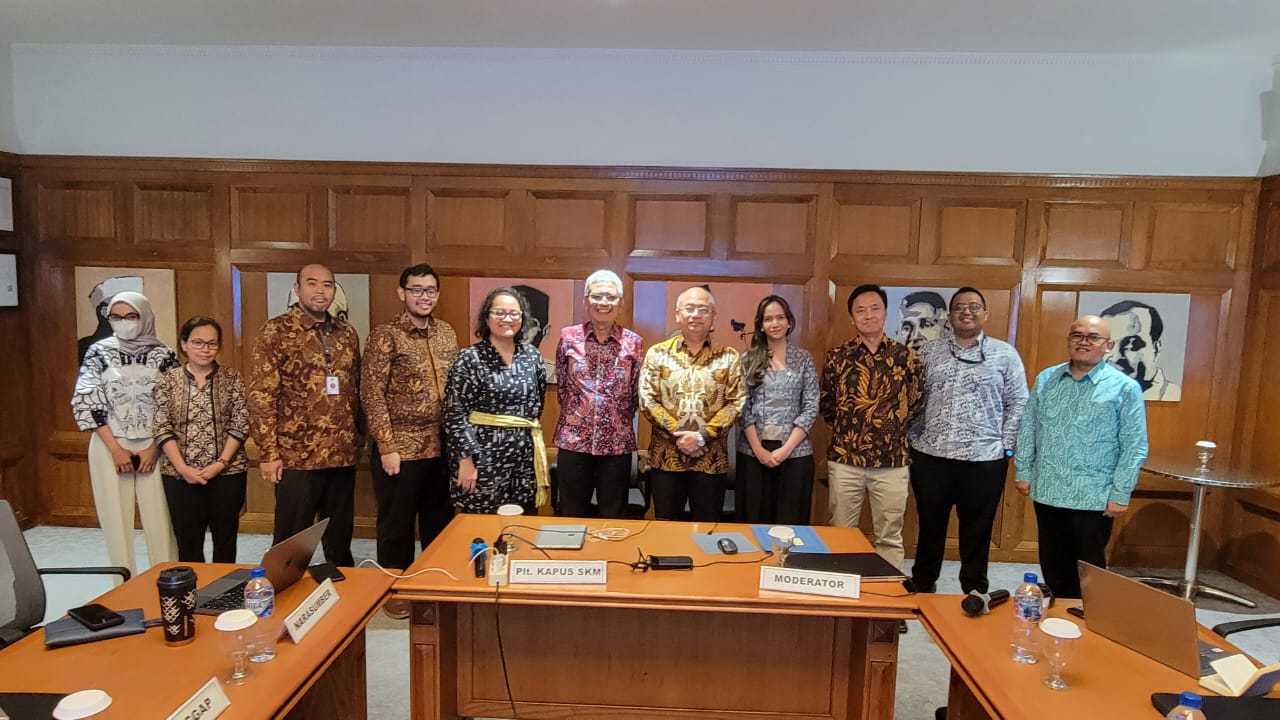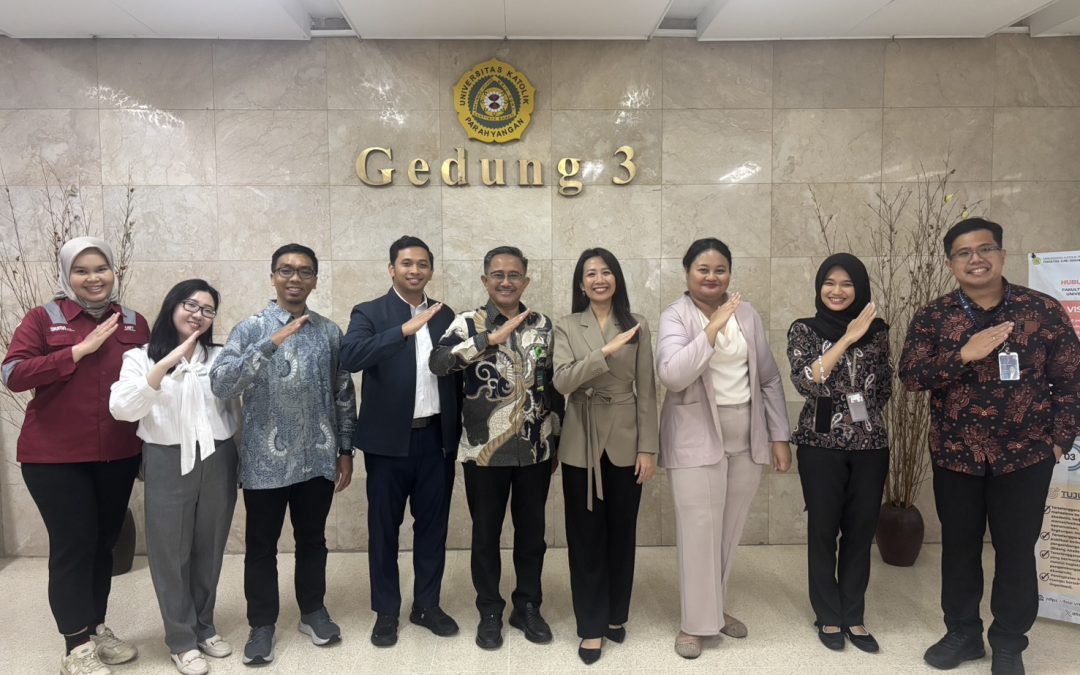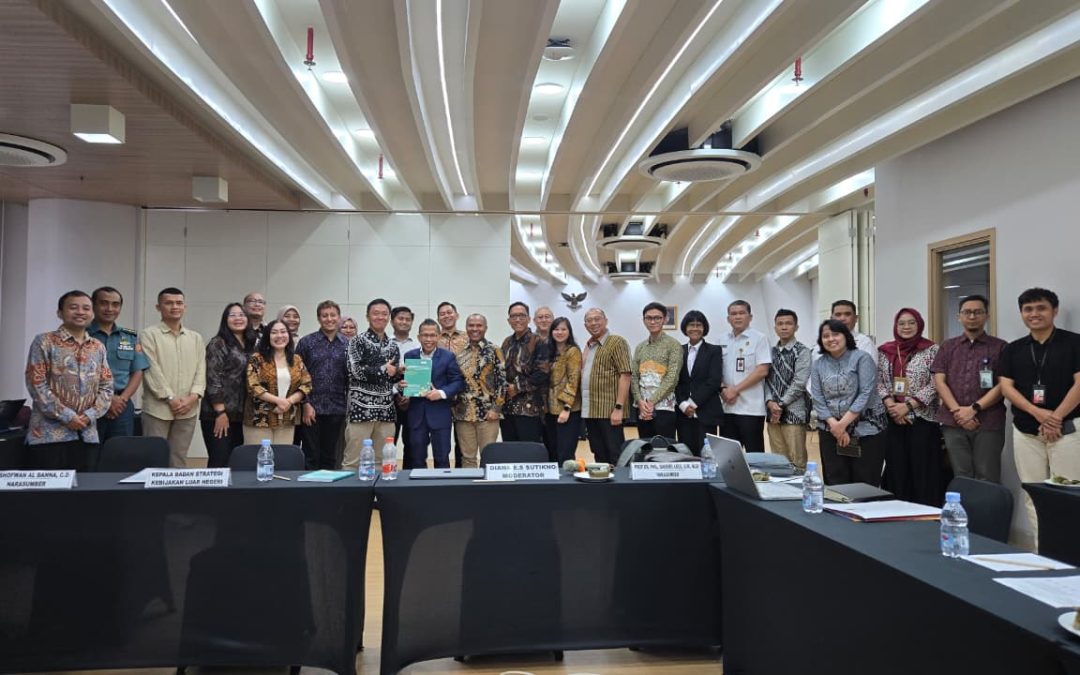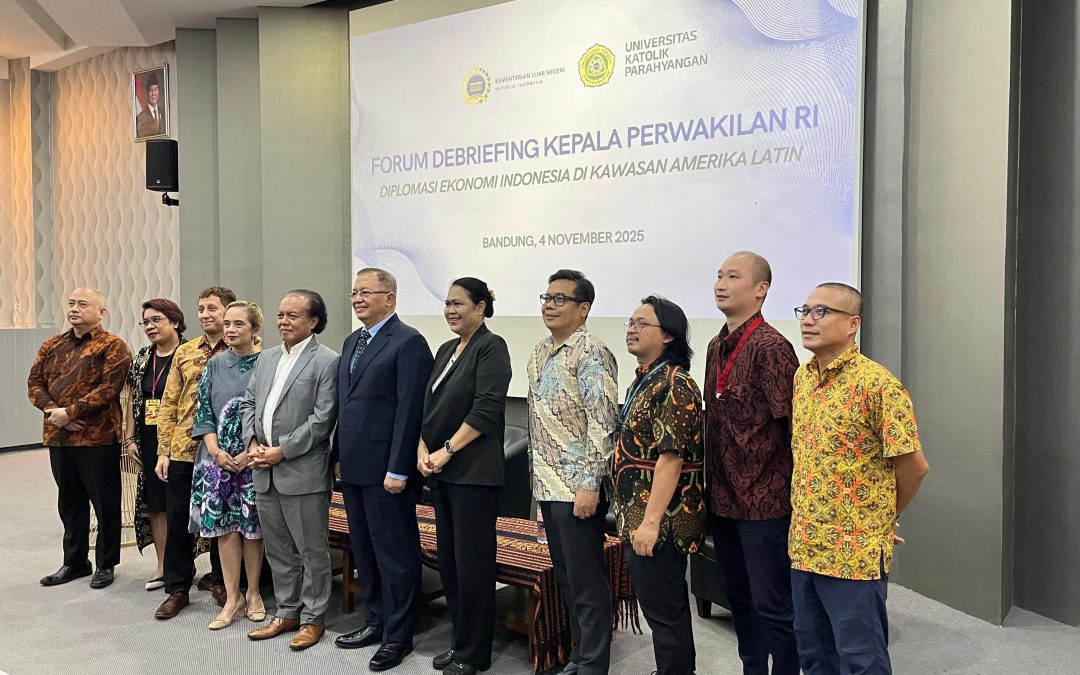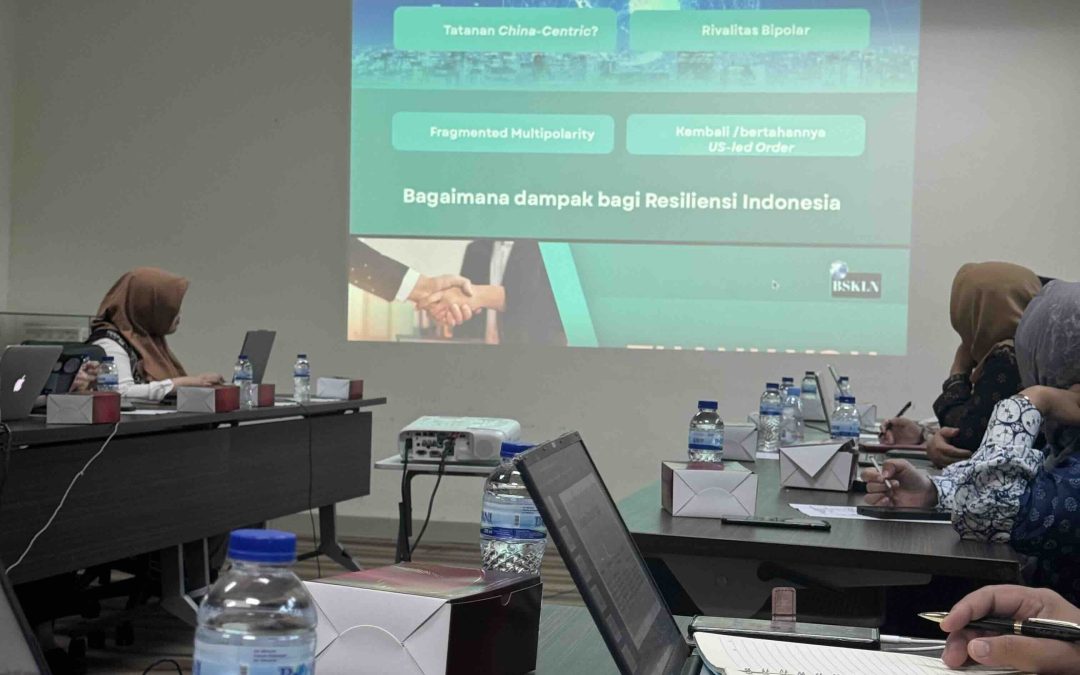The Director of the Parahyangan Center for International Studies served as a speaker at the Input Gathering Activity for the Development of the Initial Framework for Monitoring and Evaluation of Activities Related to Indonesia’s South-South Cooperation (SSC), organized by the Center for Multilateral Policy Strategy, the Foreign Policy Strategy Agency (BSKLN) of the Ministry of Foreign Affairs on May 20, 2025, at the Merdeka Building of the Asia-Africa Museum in Bandung.
The event was opened by the Acting Head of the Multilateral Policy Strategy Center, Mr. Vahd Nabyl Achmad Mulachela, and chaired by Mr. Leonard F Hutabarat, a senior diplomat from the Ministry of Foreign Affairs. The speakers included Mr. Ade Chandra Dijaya, Head of the Foreign Cooperation Bureau at the Ministry of Agriculture; Ms. Indragini, a researcher at the Directorate of Competency Development at the National Research and Innovation Agency (BRIN); and Yulius Purwadi Hermawan, Chairman of the Parahyangan Center for International Studies (PACIS) at Unpar.
Attendees at the meeting included representatives from various ministries and agencies that have been managing South-South Cooperation activities, such as the Ministry of National Development Planning (Kemen PPN/Bappenas) and the Ministry of State Secretariat, as well as representatives from directorates within the Ministry of Foreign Affairs.
The input gathering activity was intended to identify the needs and challenges in developing a monitoring and evaluation (M&E) system for capacity building and expert dispatch activities; explore good practices from the implementation of M&E for development cooperation programs or grants by government agencies, academics, and international partners, which share similar characteristics with capacity building and expert dispatch activities; formulate the basic elements of a M&E system that is relevant and contextual to Indonesia’s SSC activities.
The activity also aims to encourage synergy and harmonization across institutions so that the M&E system developed can be used consistently and complementarily by the SSC National Coordination Team, technical ministries/agencies, and implementing partners in the field.
Specifically, Yulius P Hermawan, as Chair of PACIS UNPAR, highlighted the urgency of implementing a structured, accountable, sustainable, and transparent M&E system to support SSC activities that are more outcome- and impact-oriented. Among these urgencies is the current orientation of SSC M&E, which still emphasizes outputs rather than outcomes and impacts. This is because SSC activities in Indonesia are still one-off capacity-building training programs, so the concrete results of a single activity conducted once cannot yet be seen.
The M&E has been carried out by the ministries or agencies implementing the activities, but this M&E focuses more on the outputs perceived by the participants of training activities in Indonesia and abroad in the form of expert dispatch. The outputs observed include, for example, an increase in the capacity of training participants after participating in the training activities.
The SSC activities in the form of capacity-building training and expert dispatch have indeed been successful in achieving these outputs. However, it is challenging to create a long-term impact if we do not assess what the training alumni are doing several years after participating in the SSC Indonesia activities.
The Chair of PACIS also emphasized that SSC activities are one of Indonesia’s diplomatic instruments, including sovereignty diplomacy, economic diplomacy, science diplomacy, and humanitarian diplomacy, which can support the realization of Indonesia’s strategic interests abroad, including supporting Indonesia’s candidacy for key positions within international organizations.
A holistic evaluation is needed to assess the extent to which SSC activities, which have absorbed a large portion of the budget, can help fulfill Indonesia’s national interests. For example, to what extent have agricultural training and leather shoe manufacturing activities in a number of African countries helped open up African markets for Indonesian export commodities? Another example is the extent to which there has been a change in the mindset of grant recipient countries and participants in capacity-building training activities in Pacific countries towards support for the integrity of the Unitary State of the Republic of Indonesia.
In the future, SSC activity implementers will remain diverse, as is currently the case, scattered across ministries, technical agencies, and related centers of excellence. The sources of SSC activities also remain varied, including funds from the Indonesian Development Cooperation Fund (LDKPI), allocations for ministries/agencies, and funds from international development partners such as GIZ, UNDP, JICA, KOICA, TIKA, etc.
Standardization of M&E instruments and methods is urgently needed. Indonesia also needs to develop digital applications that can facilitate the implementation of M&E, as well as reporting and widespread publication.
The database of training participants in Indonesia and abroad through expert dispatch is also very important for M&E activities. These training alumni have the potential to become friends of Indonesia who can preserve long-term memories of Indonesia’s contributions to their countries and, at the same time, support Indonesia’s diplomacy more broadly.
At the end of the feedback session, the moderator summarized the input provided by the speakers and the responses from the participants. There was a common view on the importance of structured, measurable, and results-based monitoring and evaluation. The SSC activity reporting system also needs to be strengthened so that it can be capitalized on for future activities.

